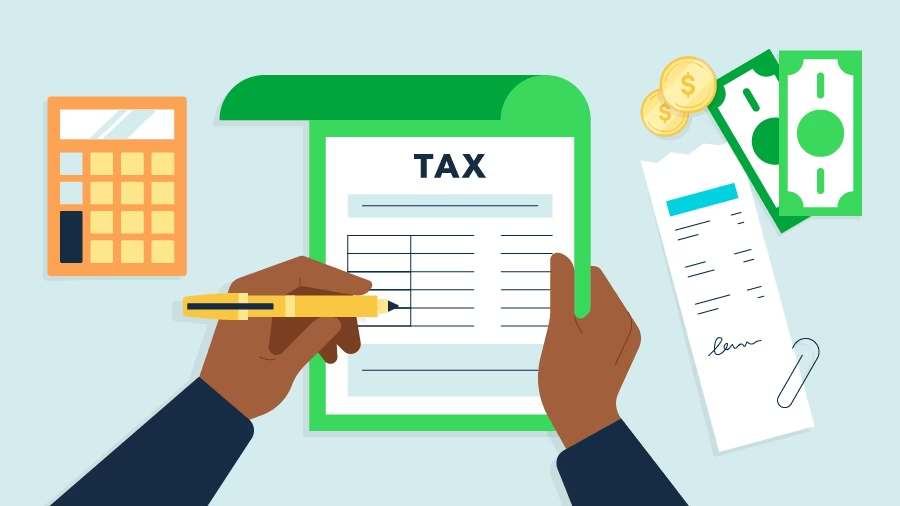Introduction:-
As a business owner, having a comprehensive understanding of the various types of taxes that may apply to your enterprise is crucial. Taxes play a pivotal role in the functioning of a country's economy and are an essential part of running a business. This comprehensive guide aims to provide insights into the different types of taxes that businesses encounter, shedding light on how they work and their impact on businesses.
The world of business taxes can be complex and ever-changing, with each jurisdiction having its own set of regulations and requirements. By familiarising yourself with the different tax types, you can ensure compliance and make informed financial decisions for your business. This guide will cover a range of taxes, including income tax, sales tax, payroll tax, property tax, and more. It will delve into the specifics of each tax type, discussing their purpose, calculation methods, potential deductions, and reporting obligations.
By gaining a solid understanding of the tax landscape, business owners can effectively plan their finances, minimise tax liabilities, and optimise their overall operations. So, let's dive into this comprehensive guide and explore the world of business taxes together.
1. Income Tax :-

Income tax is a crucial tax levied on both individuals and businesses, encompassing a significant portion of their tax obligations. It is calculated based on the income or profit earned during a specific period. National governments establish the tax rates and regulations that determine how much individuals and businesses owe. Comprehending and fulfilling income tax obligations is vital to prevent penalties and ensure sound financial standing.
For individuals, income tax typically applies to earnings from employment, self-employment, investments, and other sources. It is computed using progressive tax brackets, where higher income is subject to higher tax rates. Individuals must report their income and eligible deductions accurately to calculate their taxable income correctly.
Similarly, businesses are liable to pay income tax on their profits. The tax rate for businesses can vary depending on their legal structure, such as sole proprietorships, partnerships, corporations, or limited liability companies. Business income tax obligations involve reporting revenues, deducting allowable expenses, and calculating the taxable profit.
Familiarity with income tax laws and regulations is crucial to optimize tax planning, minimize tax liability, and ensure compliance. Seeking professional advice or utilizing tax software can aid in accurately fulfilling income tax obligations, ultimately contributing to a solid financial foundation.
( Find your burning business problem's solution here... )
2. Sales Tax (VAT) :-

Sales tax, also referred to as Value Added Tax (VAT), is a form of taxation levied on the sale of goods and services at the time of purchase. This tax can be either a fixed percentage or vary based on the nature of the items or services being sold. The primary responsibility for collecting and remitting sales tax to the government lies with businesses.
Compliance with sales tax regulations is essential to ensure accurate reporting and adherence to the law in your jurisdiction. Understanding the specific rules and guidelinesregarding sales tax is crucial for businesses to avoid penalties or legal issues. It is important to keep track of the tax rates applicable to different goods or services and appropriately calculate and collect the tax from customers.
To meet compliance requirements, businesses often integrate sales tax management
To meet compliancerequirements, businesses often integrate sales tax managementsystems into their operations. These systems help automate tax calculations, generate accurate reports, and streamline the process of remitting taxes to the government.
( Find your burning business problem's solution here... )
3. Property Tax :-
Property tax is a form of tax imposed on the assessed value of real estate properties, including land, buildings, and personal property. Its purpose is to generate revenue that funds various local services, such as schools, roads, and public infrastructure. As a business owner, comprehending your property tax obligations is crucial for effective financial planning.
Local governments determine property tax rates, which can vary based on the assessed value of the property. The assessed value is typically determined by local tax assessors who consider factors such as property size, location, and improvements. It's important to note that property tax rates and assessment methods may differ between jurisdictions.
For business owners, property tax expenses should be factored into financial planning and budgeting. Understanding the local tax laws, exemptions, and assessment processes can help minimize tax liability and ensure compliance. Consulting with tax professionals or local authorities can provide valuable insights into applicable deductions, credits, and any recent legislative changes that may impact property tax obligations.
( Find your burning business problem's solution here... )
4. Corporate Tax :-

Corporate tax is a type of tax imposed specifically on corporations and businesses. Its calculation is based on the profits generated by the business and can vary depending on the size and structure of the company. Governments set corporate tax rates and regulations, which can have a substantial impact on a business's financial performance. It is essential for businesses to have a comprehensive understanding of corporate tax laws and to engage in effective tax planning strategies.
By comprehending the intricacies of corporate tax, businesses can optimize their financial strategies and minimize tax liabilities. This involves analyzing applicable tax rates, deductions, credits, and exemptions. Effective tax planning allows businesses to structure their operations and transactions in a manner that maximizes tax benefits, ensuring compliance with tax laws while minimizing the overall tax burden.
Furthermore, businesses need to stay updated on changes in corporate tax regulations, as governments often revise tax laws to adapt to economic conditions or policy objectives. Failure to comply with these laws can result in penalties, fines, or other legal consequences.
In summary, understanding corporate tax laws and engaging in effective tax planning is crucial for businesses. It enables them to optimize their financial performance, minimize tax liabilities, and ensure compliance with government regulations.
( Find your burning business problem's solution here... )
5. Capital Gains Tax :-

Capital gains tax is a levy imposed on the profits generated from the sale of assets likestocks, bonds, real estate, and other investments . When individuals or businesses sell an asset at a price higher than its purchase cost, the resulting profit is subject to capital gains tax. The tax rate for capital gains can fluctuate based on various factors, including the duration the asset was held. It is crucial for businesses to effectively manage and report capital gains to ensure adherence to tax regulations.
Compliance with capital gains tax laws is vital to avoid penalties and legal complications. Businesses must accurately calculate the gains made from a sset sales, taking into account factors like the original purchase price, selling price, and any associated expenses or deductions. Additionally, the length of time an asset is held can affect the tax rate, with long-term capital gains often benefiting from lower rates than short-term gains.
Proper reporting of capital gains involves documenting the relevant information, such as transaction dates, cost basis, and sale proceeds, in tax returns or financial statements. It is advisable for businesses to seek professional guidance from accountants or tax experts to navigate the complexities of capital gains tax and ensure compliance while maximizing tax benefits within legal limits.
( Find your burning business problem's solution here... )
6. Excise Tax :-

Excise tax is a form of taxation imposed on particular goods and services, including tobacco, alcohol, gasoline, luxury items, and environmentally damaging products. Its primary purpose is twofold: discouraging the consumption or use of these goods and services and generating revenue for the government. By levying higher taxes on these items, governments aim to reduce their consumption and promote healthier and more sustainable choices.
The rates of excise tax can vary depending on the specific product or service being taxed. These taxes are typically incorporated into the retail price, meaning consumers pay them indirectly when purchasing the goods. Businesses involved in the production or sale of excisable goods bear the responsibility of understanding and adhering to the relevant excise tax regulations. This includes accurately calculating and collecting the applicable taxes, as well as fulfilling any reporting or filing obligations.
For governments, excise taxes serve as a means to control and regulate the consumption of goods that may have detrimental effects on public health, the environment, or society as a whole. Additionally, the revenue generated from these taxes can be used to fund public services and initiatives or support specific sectors or programs.
7. Payroll Tax :-

Payroll tax is a mandatory deduction from employees' salaries that is used to fund important programs such as social security and Medicare. Employers have the responsibility of withholding the appropriate amount from their employees' paychecks and submitting it to the government. The specific rates and regulations of payroll taxes can vary depending on the jurisdiction and the particular programs being supported.
Comprehending payroll tax obligations is essential for businesses to ensure compliance with the law and maintain accurate reporting. Employers must stay updated on the applicable tax rates and rules in their region to calculate the correct amount to withhold from each employee's wages. Failure to comply with payroll tax regulations can result in penalties and legal consequences.
In addition to social security and Medicare, payroll taxes may also fund other programs such as unemployment insurance and workers' compensation. It is important for employers to accurately allocate and report these payroll taxes to the relevant government agencies.
Overall, understanding and adhering to payroll tax obligations is crucial for businesses to fulfill their legal responsibilities, support essential programs, and avoid potential financial and legal complications.
Conclusion :-
Navigating the complex landscape of business taxes is essential for every business owner. By understanding the different types of taxes, including income tax, sales tax, property tax, corporate tax, capital gains tax, excise tax, and payroll tax, businesses can ensure compliance, plan their finances effectively, and avoid unnecessary penalties. Stay informed about the tax regulations in your jurisdiction and consult with tax professionals when needed to optimize your business's tax strategy and ensure financial success.
Frequently Asked Questions
1. What are the consequences of not paying business taxes? Not paying business taxes can have serious consequences, including penalties, fines, interest charges, and even legal action by tax authorities. It's essential for businesses to meet their tax obligations to avoid these consequences and maintain a good standing with the tax authorities.
2. Can I deduct business expenses for tax purposes?Yes, you can deduct legitimate business expenses incurred in the course of operating your business. These expenses may include rent, utilities, salaries, marketing costs, and other necessary expenses. It's important to keep accurate records and consult with a tax professional to ensure proper deduction of business expenses.
3. Are there any tax credits available for small businesses?Yes, there are several tax credits available specifically for small businesses. These can include the Small Business Health Care Tax Credit, the Research and Development Tax Credit, and the Work Opportunity Tax Credit, among others. Researching and taking advantage of these tax credits can help small businesses reduce their tax liability.
4. How can I reduce my tax liability as a business owner?There are several strategies to reduce tax liability as a business owner. These include maximizing deductions, taking advantage of available tax credits, implementing tax-efficient retirement plans, and engaging in effective tax planning. Consulting with a tax professional can provide valuable insights and guidance tailored to your specific business situation.
5. What are estimated tax payments, and do I need to make them?Estimated tax payments are periodic tax payments made by individuals and businesses who expect to owe a certain amount of tax at the end of the year. If you are self-employed or receive income that is not subject to withholding, you may need to make estimated tax payments to ensure you meet your tax obligations and avoid penalties for underpayment.
6. How can I ensure compliance with tax laws and regulations?To ensure compliance with tax laws and regulations, it's advisable to consult with a qualified tax professional who can provide guidance specific to your business and jurisdiction. Keeping accurate records, staying informed about tax law changes, and proactively addressing your tax obligations can help you maintain compliance and minimize the risk of penalties.













